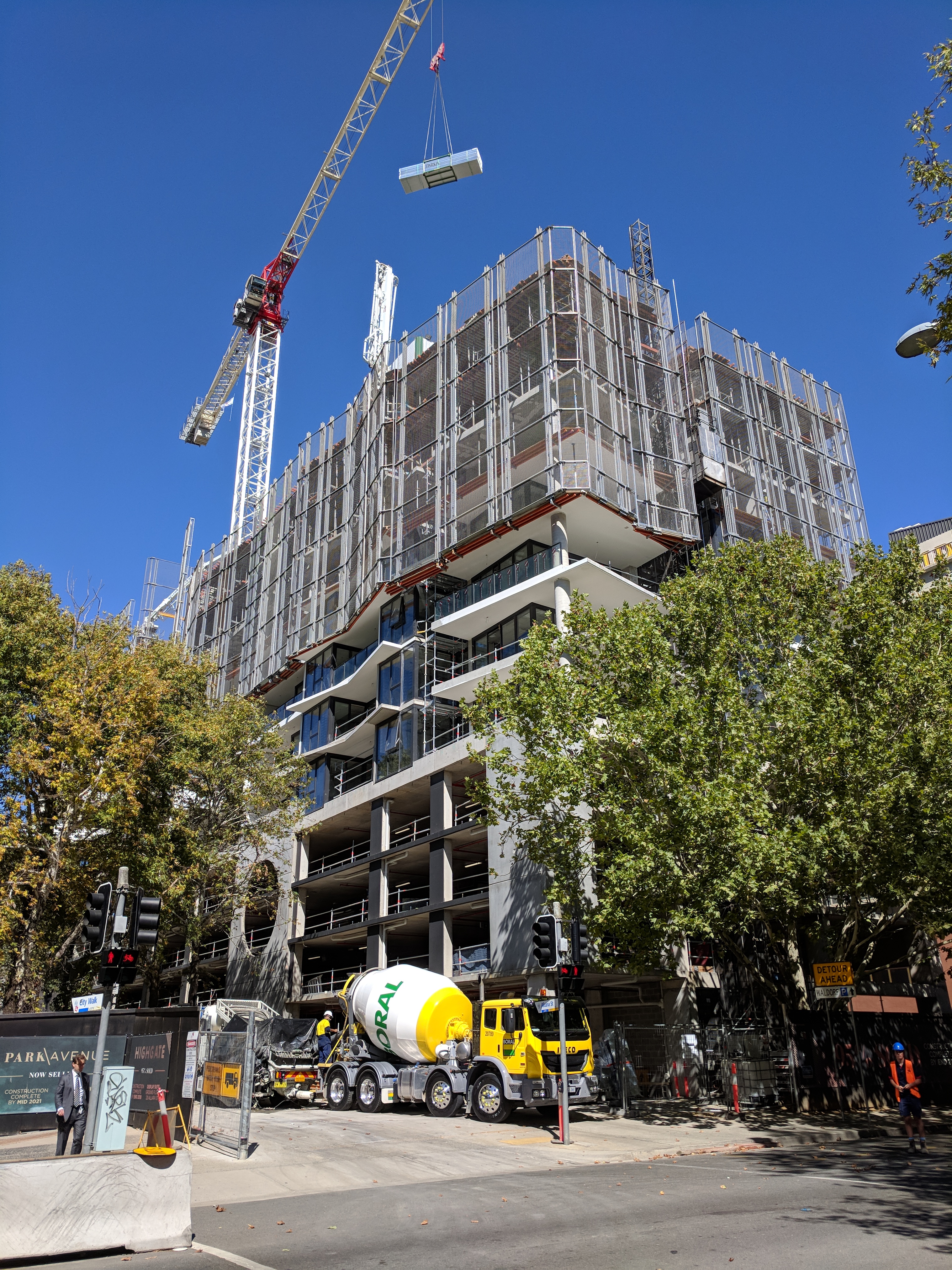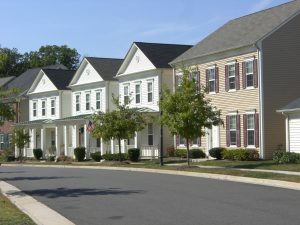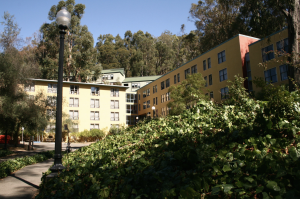By Aurelia Scheppers
Katerina Robinson is the Legislative Director for state Senator Nancy Skinner (D – Berkeley). Her primary focus has been on environmental policies, but she is currently working on pushing through an array of bills to help relieve the housing crisis. Robinson double-majored in Political Science and in Theatre, Dance, and Performance Studies at the University of California, Berkeley, then went on to earn her master’s in Public Policy and Administration at California State University, Sacramento.
Meet Katerina Robinson; mother, wife, friend, daughter, sister, policymaker, pre-professional classically trained ballerina, UC Berkeley alum, and last but not least, legislative director for California State Senator Nancy Skinner. Even though Robinson’s specialty is environmental policy, she is currently working on passing an array of housing bills to help with the housing crisis in the East Bay. In this interview, she addresses the progress California has made towards the housing crisis, provides insight into her responsibilities as legislative director and shares news about exciting policy reform. In the details, she’ll explain what is happening with the inflated cost of housing and why there is a crisis for homeowners to keep their homes in California.
Before working with Sen. Skinner, Robinson was a co-founder of Environment and Energy Consulting, a firm in Sacramento dedicated to public benefit, climate, and energy lobbying. Prior to that, she worked for State Assemblymember Mike Gatto in Sacramento and Congressman Mike Honda in D.C. Robinson was a founding member of California Women in Energy, a non-profit dedicated to building women’s careers in energy policy. Her past experience in energy and housing qualifies her as someone you would want working on policy reform. Her environmental background and passion helps with her “smart housing” ideas. Robinson graduated from UC Berkeley in 2010 double majoring in Political Science and Theatre, Dance and Performance Studies. She then went on to get her master’s in Public Policy and Administration at the University of California Sacramento.
A typical day as legislative director for Nancy Skinner looks like this: get legislative ideas for Skinner, work with the staff to research legislation, draft the legislation proposals during the offseason and work to finalize the final legislature. Robinson helps Sen. Skinner introduce those bills while managing staff and making sure all bills get moved along. “It is my job to know all the rules of the legislature, so I know what things we have to do. I know how to fix things, follow the rules, draft fact sheets for the bills, teach others in the office about bills, making sure we have the votes, counting the votes and then ultimately hoping we get the bills passed and signed by the governor,” Robinson says.
When asked about the housing issues, she explains that the high demand for housing in the East Bay is due to an influx of new people in tech and this is pushing people out of units. Tech businesses are moving in and a lot of units that used to be rented have been sold because property value has risen. Homes that would have been rented are now off the rental market. Not only can people not afford to buy because the price of a single-family home has gone up drastically, but the rental market is also very high and constricted. “Houses have been blazed by fires and we now have 80,000 people who are temporarily displaced and don’t have housing. So, we have this huge boom with people facing homelessness, who are first time homeless, and there are no properties available for them to move to,” Robinson explains. This is a troubling consequence of the fires, rent increase, and the popularity of wanting to live or stay in California.
“California legislators have been trying to tackle the housing problem for a long time,” Robinson says. There are more and more tents popping up in Oakland; all over the East Bay. Traditionally the homeless problem was mostly just in San Francisco, and before it was mostly due to mental illness or people with drug addictions, but now there is a whole new boom of “type of homelessness,” now low-income families can’t afford housing and are spending a huge portion of their money on their rent each month. She states that in California there are twenty-two units available for every one hundred people that need affordable housing.
So what is happening next with housing policies? According to Robinson, now that there is funding available proportionate for new housing, the new question is going to be: Have we put enough of the laws on the books that are going to be functional for the development of new housing or do we still need to make changes to the law to get new housing built quickly? Skinner intends to introduce an emergency housing declaration bill at the end of the year so that way, hopefully, the housing can be built quickly. We have the money, we’re going to say, you don’t have to do this full permitting process, less streamlined permitting would eliminate some state requirements that would otherwise be in place and start to get people to build quickly and it’s going to be a wait and see what happens kind of thing, if this will be able to happen.
I ask Robinson to give an example of what other cities are doing to combat the housing crisis. Santa Rosa is a great example of a city that has figured it out, they have made a lot of great changes. They did things that speed up the process for building, they opened a whole new permit office last year and it severely shortened permitting timelines. She informs that some other cities are doing a great job at building quickly and are taking a proactive approach, but cities have to build a certain amount of density in high-need areas. Sen. Weiner had a bill last year that he will introduce again that says that you can’t have single-family homes around transit. This would allow for more housing. “It was a super controversial bill and it died last year. It was going to force cities to do denser housing by areas that have transit elsewhere in the city or region,” says Robinson. “New legislation in Sacramento — Senate Bill 827, authored by state Sen- Scott Weiner, D-San Francisco, and co-authored by state Sen. Nancy Skinner, D-Berkeley — would allow for the return of the missing middle in California. If enacted by the legislature and signed by Gov. Jerry Brown, SB 827 would prohibit city councils and boards of supervisors from barring small and mid-size apartment buildings and condos, ranging from five to eight stories in height, close to major transit hubs — like BART stations and bus lines. The bill would be a game-changer (Robert Gammon).”
What do you think about this notion? Entitlement to zip code? If someone cannot afford to live in a certain area anymore, but no matter what, even if it is drastically affecting their quality of life, they want to live there still. Even if it is just not financially realistic any longer, they want to stay in California. The whole point of civil democracy is supposed to be that we are their voice in government and they want affordable housing and we should listen to them. We don’t have direct control over what they do with their lives, we just have to address the impact on society, there are a lot of people facing homelessness and the population is growing.
“The state’s work is a reaction, it is due to the effects of the housing crisis and we don’t have an ability to tell people to move, we represent them, and they want housing.”
Another reason people might want to stay in California, opposed to moving to a lower cost of living state, is because they could be upside down on their mortgage. People don’t want to leave their family, friends, and work. There is no guaranteed job placement in another state. And a lot of people just want to live in California, so they try to make it work.
Robinson went on to explain what she likes most about her policy work and how she thinks this has affected people. She said that housing policy is hugely impactful to people’s lives and it’s a fun area to work in and also a really challenging area to work in. It is hard enough to control the private housing market aside from trying to do governmental housing. We are not going to build governmental housing; all we can try to do is set up incentives. So it can be really frustrating because when you push bill after bill and don’t see a lot of change on the ground, it can be hard. These bills can hit people right where they live so it can be the difference between someone staying in their house or becoming homeless.
Are these policies making a huge difference? She tells me the policies are making a huge difference mostly in the environmental field and land-use sector. Housing is a huge determinant in whether we are going to be able to make communities that continue to contribute to climate change, these are huge developments. What is the future of policy in the field you are working in or what housing policies would you like to see next? “Certain denser smarter communities, where people can live where they work, so they don’t have to get in cars all the time. People who can walk or bike or take other transportation to work. Create communities that are more inviting and vibrant and be able to reduce emissions and help communities that contribute as much land use, this has continued to be one of the biggest things that could help climate change, environmental housing.”
One of the biggest problems for Robinson and the government around housing are the costs to build. Housing costs so much to build and the state has a lot of additional requirements, for example, they are required to use union labor, and develop environmental documents, the cost for building the units is very high, so the developers end up renting the units for a lot of money in order to recoup. The units that are being built are now basically luxury condos, medium and higher-income individuals now have this chronic issue, the people who used to live there could afford the old places but can no longer afford the new units being built in their place.
Senator Skinner worked on a bill with Senator Belle that put a large amount of funding toward homelessness. It was in the state budget at the end of last year, SB912, that put two billion dollars towards homelessness, housing, and short-term housing. It was folded into the budget, that was a big deal, really exciting, a lot of locals fought for that. There is a homeless crisis because of the housing crisis.
She elaborates that on top of that, the legislators put a bond on the ballot to fund and pay for more housing. The bill passed and we now have an ample amount of funding to put towards building more housing. The idea was, “let’s put a bond out that does a ton to provide money for short-term housing for people facing homelessness and actually have housing get built in a more expedited manner. The other big problem we are always faced with is dealing with NIMBY (Not in My Backyard). These people are sensitive to what kind of housing goes up near their property.”
She tells me that when it comes to building though, most cities, including Oakland and Berkeley, have long-standing laws that block smart growth, particularly in high-income neighborhoods. “For years, these exclusionary zoning laws, backed by influential and wealthy NIMBYs have stopped transit-oriented development in well-to-do neighborhoods like Rockridge and around North Berkeley BART. In those districts, most streets are zoned only for single-family homes, while new apartment buildings and condo complexes are not allowed. And local politicians have been loath to reform single-family zoning out of fear of angering NIMBY groups (Gammon)”.
People in certain neighborhoods are very sensitive about low-income housing going up near where they live. There are all sorts of local opposition that tie up housing projects for a long time. Planning committees that have to approve projects end up shutting down or changing the design. The public process is a mess. Sometimes NIMBY complains about things as small and specific as shadows, that would be created with new housing in their area. Shadows can be a huge problem and hold up. It makes sense though because it can drive the property value down on their home and some people are counting on that asset for their retirement. It looks like we have made a lot of recent progress regarding the current housing crisis in California, legislators are fighting hard to help their people.
Please give Robinson a round of applause, she deserves an abundance of appreciation for the work she is and has been doing to serve the state and people of California. We look forward to watching the progress of these policies come to fruition. Thank you for your dedication and service in this field.
There is no place like home.
This interview took place on November 16th, 2018.
References
Bernardino, Alyssa. “State Sen. Nancy Skinner Introduces Bill to Boost Affordable Student Housing”. The Daily Californian. 28, March,2018.http://www.dailycal.org/ 2018/03/27/state-sen-nancy-skinner-introduces-bill-boost-affordable-student-housing/
Gammon, Robert. “Smart Growth Housing Bill Is a Game-Changer”. East Bay Express. 31, January 2018. https://www.eastbayexpress.com/oakland/smart-growth-housing- bill-is-a-game-changer/Content?oid=12877264








Be First to Comment